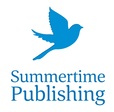|
I’ll cut straight to the chase and tell you about the thing that has dominated my thoughts since my last newsletter. My son has left home. It was not unexpected. It was inevitable, anticipated, we were prepared. Last year he completed his A levels and the year before he had applied to university in London and been accepted. He started packing the moment he heard he’d got the grades he needed. But when it was time to wave him off, two days ago, it was no less heartbreaking for me. Sam, on the other hand, had a new life to lead, alone, without me to wash his clothes and check he had enough to eat. But even as we drove off through the streets of Islington, back to the Eurotunnel, I could not suppress a slight smile of recognition, that this sweet sorrow mirrors my life as a writer. You see, they say that a painting, like a piece of writing, is never finished, it just stops in an interesting place. They say that there comes a time when the editing must stop. A time when you actually make things worse by over-refining them. A time when you have to let them go. There comes a time when you must admit you have done your bit leave your work to find its own way. A couple of weeks before Sam left, I had a day when the enormity of the hole his departure would leave in my life and my nest kept creeping up on me, like the children tiptoeing behind me in a game of What’s the Time Mr Wolf? I had climbed into bed with sinking heart and picked up the copy of The Muses Among Us, by Kim Stafford, that lay on my bedside table. It opened on page 38. I read: ‘One day, it is time for the child to leave home. To remain longer would reverse the principle of healthy growth. That day comes when the child is mature enough to go out into the world, and the parent has other things to do. In the terrifying words of Donald Graves, we should not linger so long with a piece of writing that we begin “giving a manicure to a corpse.”‘ Since reading those lines my feelings about the departure of my firstborn became calmer. If could totally empathise with Stafford’s beliefs as a writer then it followed that if it was time to let go of my son, it was time to let go. Back in May I had finally finished my novel and realized that it was time I stopped trying to improve it and let it go, too. I printed out a synopsis, cover letter and three sample chapters, put it in a padded bag and sent it out into the world. It is now doing the rounds of the agents. Sure, I keep thinking about it, missing the days I spent writing it, lost in a parallel universe with my characters. But I know I was right to let it leave home. In my experience as a writer’s mentor, I have seen many instances where overworking ends up spoiling a very good piece of writing. Sure, you have to ‘murder your children’, as they say, and cut some of the best bits. Sure, you have to cut superfluous or empty words, repetition and to keep things simple. But there comes a time when you can cut too much and may have nothing left. I am also a firm believer in the principle that often the thing you think of first may be the best and that, as Hamlet says in the ‘to be or not to be’ soliloquy: ‘the native hue of resolution //is sicklied o’er with the pale cast of thought.’ It can be dangerous to think about something too much or too long. And so, as I sit at my desk in the knowledge that we now have a spare bedroom again, I ask you to think about your writing, to let it flow, to try not to stunt its growth and to recognise when it is time to let it go.
|
�
All the latest news from the team at Summertime Publishing
As an Amazon Associate, we may earn a commission from qualifying purchases. This does not affect the price you pay or your consumer rights.
Archives
June 2024
|


